



In June last year, our ship, the Rainbow Warrior, was docked in Jakarta when she welcomed the visit of Indonesian President Susilo Bambang Yudhoyono, his family, and his cabinet ministers. It was, for me, among the defining moments of our work in 2013—one of the fruits of the long, hard years of campaigning for a better environment in Southeast Asia. In his speech that day of the visit, the President said: “I want to guarantee my grandchildren a clean and peaceful environment in the future.”
This is the vision we have as Greenpeace—and it is a vision we share with you who have joined us, and continue to support us, on this journey. This vision is also reflected in the work we accomplished in 2013—a year where we marked significant milestones both in our campaigns, and for our organization as a whole.
Greenpeace Southeast Asia has a strong track record in running and winning campaigns that are not only relevant to people in the region, but also supportive of Greenpeace global goals. Our campaign achievements in the last ten years, which includes many successes at the local, national and regional levels stand as proof of Greenpeace Southeast Asia’s ability to effectively influence governments in the region and catalyze landmark changes for the environment. This annual report gives an overview of the campaign successes we were able to deliver in the past year.
At the same time, 2013 has been a crucial transition year for us as an organization. Notably, in mid-2013 we started the new 3-year planning process for our program and operations for the 2014-2016 period. This planning process marks the beginning of our full transition into the new Operating Model of the global Greenpeace organization.
The new global Operating Model is a strategic plan that acknowledges the profound changes in today’s world, particularly the shift of geopolitics to a new multi-polar world in which emerging economies play a key role in global development, even as they heavily impact the planet’s ability to support life.
The new Operating Model also embraces the huge impact digital communication now has on global politics. Southeast Asia, aside from being at the center of these two trends, is a region where environmental degradation is caused and where its impacts are felt most. It is a key battleground where the fight to save the planet will be won or lost.
This points to the global significance of the work we do in our region. The region’s fast-paced economic progress must be matched by robust environmental policies to ensure just and sustainable development for current and future generations.
This means that in the coming years Greenpeace Southeast Asia will be playing a leading role in the planning and implementation of global Greenpeace projects. To achieve this, the plan we developed in 2013 sets ambitious goals and redefines how Greenpeace Southeast Asia can successfully contribute to the vision of a green and peaceful future for our planet. In particular, we are reorganizing our operations to ensure they are tailor-fit to continue winning campaigns—this time with a revitalized focus on “people power.”
We strongly believe that engaging people and empowering them to participate in environmental issues will ensure that our work will have maximum and lasting impact on the ground and in the level of policy.
Our vision remains at the heart of this transition. So that just as I look back with pride at our successes in the past year and past decade, I look forward with great optimism toward the direction of our work in the future.
At the same time, however, even as I you read this, environmental destruction continues, endangering the future of our children and our region. The work ahead of us in Southeast Asia is huge, and the responsibility for us to ensure environmental wins for the planet is even bigger.
But with renewed vigour, stronger campaigning and people power, I am confident we can achieve our shared vision together.


It is vital that human societies live in harmony with the planet and within ecological limits.
Greenpeace pushes for positive change through real engagement and by building strong alliances. And in a way that perhaps only Greenpeace can, we take on the powers that stand in the way of positive change and help drive real solutions, giving voice to those who demand a healthy planet for present and future generations.
Southeast Asia's forests, mountains, rivers and oceans are home to millions of people and thousands of species of trees, plants, birds and mammals. But today, much of these flora and fauna are under threat from climate change, deforestation, pollution and unsustainable industrialized agriculture. Southeast Asia's rapid industrialization and economic success has come at a heavy price.
In our work in the region for the past 13 years, our mission is unchanged: to safeguard environmental rights, expose and stop environmental crimes, and advance clean development.
Our Program in the region lays out our analysis of the crisis and the blueprint to how we can effectively respond and change the current trajectory in favor of a green and peaceful future.
Our aim is to protect the region from further ecological ruin and to serve as a beacon of awareness and action in the interest of environmental protection and sustainable development.
With an active and growing support base of individual financial donors, cyber activists, volunteers, grassroots groups, allied movements, and committed staff, we are successfully building a sustainable future for the people in the region.
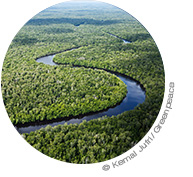
Protect the world's ancient forests
and the animals, plants and people that depend on them.
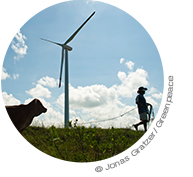
Catalyse an energy revolution
to address the number one threat facing our planet: climate change.
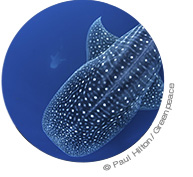
Defend our oceans
by challenging wasteful and destructive fishing, and creating a global network of marine reserves.
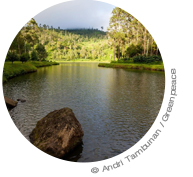
Create a toxic-free future
with safer alternatives to hazardous chemicals in today's products and manufacturing.
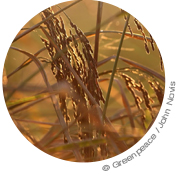
Promote sustainable agriculture
by rejecting genetically engineered organisms, protecting biodiversity and encouraging socially responsible farming.
In our work, we are guided by our core values of non-violence, financial independence, confrontation and the power of acting together.
Guided by our long-term global vision, we work on initiatives and objectives that are designed to achieve strategic goals as encapsulated in our three-year plan. In 2013, we concluded our 2011-2013 program plan, and started our transition towards the new global Operating Model which seeks to make Greenpeace more responsive to the escalating environmental threats across the world, including in Southeast Asia.
This transition will address 7 priorities to ensure that we remain relevant, effective, and trusted: Programme, Growth, Engagement, Regional Development, Organization, Standards, and People.
These strategic goals have been envisioned to enable Greenpeace Southeast Asia to lead and implement global projects as well as realize larger potentials in harnessing the power of our greatest strength: our people and their actions in moving the world towards positive change.

Greenpeace defends the natural world and promotes peace by investigating, exposing and confronting environmental abuse, and by championing environmentally responsible solutions.
Throughout 2013, Greenpeace Southeast Asia continued campaigning to highlight the need for the region to divest from dirty energy and increase investments in clean energy in order to address climate change. We also stepped up our work to preserve our forests, particularly those in Indonesia where the rate of forest destruction is one of the highest in the world.
Our Climate and Forests campaigns remain among our priorities, on the basis of urgency. Our goal is that greenhouse gas emissions peak by 2015 and decline thereafter. To achieve this we need to ensure a global energy revolution—moving away from fossil fuels and nuclear energy to renewable energy and energy efficiency; to see zero deforestation; and to ensure that an effort- sharing framework exists for tackling climate change that is both equitable and has environmental integrity.
We officially launched our Oceans campaign in the region last year. In 2012 our Oceans campaign work started in the Philippines. Recognizing how the seas of Southeast Asia are among the planet’s most productive and biodiverse—but also most threatened marine waters, we expanded our campaigning base to Indonesia and Thailand. Our goal is to bring an end to overfishing and protect the oceans by championing marine reserves.
We started expanding our Sustainable Agriculture campaign, which aims to achieve food and farming that is good for the planet and people. Aside from working to halt to the expansion of genetically modified organisms (GMOs) into the environment, we geared up our work to stimulate a paradigm shift from damaging chemical-intensive agriculture to ecological agriculture.
And with our Toxics campaign, we continued to call for a stop to the release of hazardous chemicals by factories into our freshwater systems by pushing for policies that will eliminate toxic chemicals from production processes.
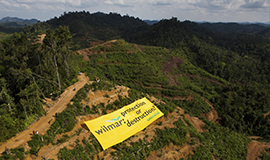
©Paul Hilton/ Greenpeace
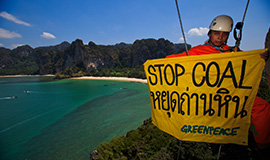
©Athit Perawongmetha/ Greenpeace
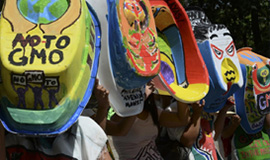
©Pat Roque/ Greenpeace
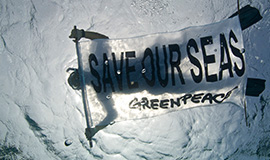
©Steve De Neef/ Greenpeace
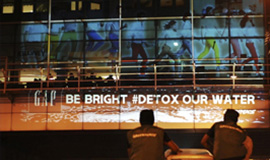
© Deden Iman/ Greenpeace
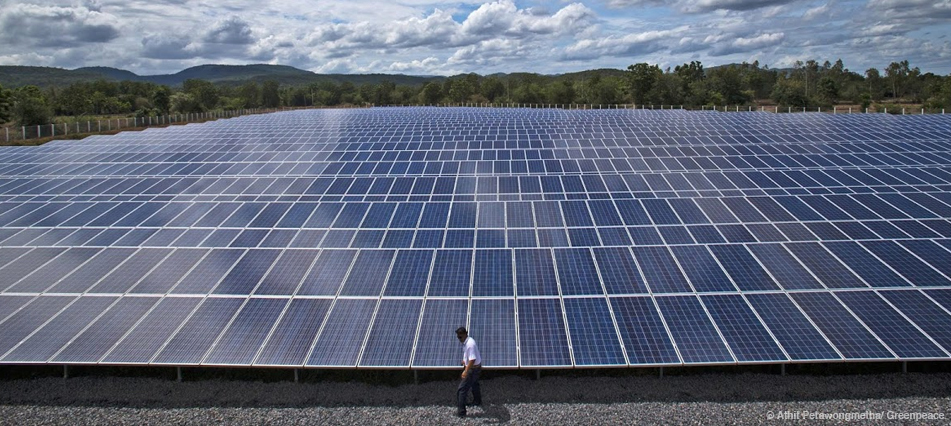
We started the year by promoting solutions with the launch of our Green Jobs report in the Philippines with the message that renewable energy is the key to economic progress.
In Thailand we continued our work with the anti-coal movement in the south where, together with allies and communities, we were able to delay the proposed government plan to construct a coal power plant in Krabi. Elsewhere in Chachaoengsao province, in October, the Environmental and Health Impact Assessment (EHIA) for a proposed 600 megawatt coal plant was rejected for the second time.
In Indonesia, we succeeded in helping stall the construction of a coal plant. Last October, President Susilo Bambang Yudhoyono signed a Presidential Decree delaying the financial closing of Batang Coal Power Plant for the next six months.
Renewable energy solutions are also gaining ground in the country. The feed-in-tariff (FIT) for solar and wind was finally introduced in Indonesia in March. This is the second time the government introduced a feed-in tariff for renewable energy, and these developments are consistent with our recommendations in the Energy Revolution report for the region.
In solidarity with the rest of the world and to demonstrate how global solutions start with local action, some 38,540 people from Southeast Asia joined the planet-wide call to Save the Arctic and to declare it as a global sanctuary. The Arctic is at the very heart of regulating the earth’s climate, so protecting the ice means protecting our region from the effects of climate change.
As a result of Greenpeace’s efforts to confront Artic oil drilling, 30 international activists and staff on board the Greenpeace ship Arctic Sunrise were arrested by Russian authorities in October. Our activists and supporters took action at Russian embassies in Jakarta, Bangkok and Manila in a bid to ‘Free the Arctic 30’, demanding the safe release of the Greenpeace crew who took part in a peaceful protest at Gazprom's oil rig in the Russian Arctic. Three months later, and after the global public movement, which included a host of celebrity supporters like Sir Paul McCartney, Madonna and Jude Law, the Russian parliament granted amnesty and released the Arctic 30.
 ©Ulet Ifansasti/ Greenpeace
©Ulet Ifansasti/ Greenpeace
In February, after years of public pressure in the media, the boardroom and in the frontlines through peaceful confrontations by Greenpeace activists, Asia Pulp and Paper (APP), one of the world’s largest producers of paper and packaging, announced a commitment to end its role in deforestation. Greenpeace’s campaign to transform Indonesia’s pulp and paper sector included ground-breaking exposés of APP’s operations, and high profile campaigns exposing the global brands whose paper and packaging is supplied from APP.
In May, President Susilo Bambang Yudhoyono extended the moratorium on deforestation for another two years. Along with other local Indonesian NGOs, we continue to work to ensure this moratorium is strengthened to cover all forests and peatlands.
In July, we became one of the founding members of the Palm Oil Innovation Group (POIG), together with other NGOs active in environmental and social issues and innovators of palm oil production. POIG is committed to a set of standards to reduce deforestation that go beyond the requirements of industry associations.
Wilmar International, the world's largest palm oil trader, in December announced a No Deforestation Policy in response to pressure from Greenpeace, other NGOs and consumers around the world. The policy has the potential to be a landmark win for the world’s forests and the people that depend on them for their livelihoods. In the past years, Greenpeace has repeatedly exposed Wilmar’s role in gross acts of forest destruction which included sourcing from national parks, destroying prime tiger habitat, sourcing from suppliers linked to orang-utan ‘graveyards’ or forest fire crisis areas in Sumatra. Wilmar’s commitment comes two months after the launch of the report Licence To Kill which shows how plantations have driven Sumatran Tigers to the brink of extinction.
 ©Paul Hilton/ Greenpeace
©Paul Hilton/ Greenpeace
To mark the official launch of our newest campaign—defending the oceans of Southeast Asia—we put a spotlight on the beauty of our region’s seas, the importance of marine reserves, and on the other side, the increasing threats our marine ecosystems face, such as destructive fishing and pollution.
The launch of this campaign coincided with the arrival of two Greenpeace ships to the region: the Rainbow Warrior, which visited Indonesia, and the Esperanza, which sailed to Thailand and the Philippines. Together, the ships embarked on the Ocean Defender Tour of Southeast Asia.
The tour started in Indonesia last May, where in Jakarta, the Rainbow Warrior welcomed aboard President Susilo Bambang Yudhoyono, who, with members of his cabinet, affirmed his commitment to preserve the environment. In June, the Esperanza visited Thailand where she exposed how the country’s marine ecosystems, particularly in the Gulf of Thailand, are in the brink of collapse, largely due to severely destructive fishing operations. The ship sailed with hundreds of local fisherfolk to call for more stringent policies to protect the seas. In the Philippines, the Esperanza helped show how climate change, destructive fishing and pollution were ruining the richness and the beauty of the Philippine seas.
With the launch of our new campaign, we are gathering widespread support from communities and individuals, and are calling for political will that is needed to save the seas of Southeast Asia.
 ©Andri Tambunan / Greenpeace
©Andri Tambunan / Greenpeace
Environmental issues are both local and international, and our Toxics campaign work in 2013 showed how problems and solutions in these two fronts are intertwined. The launch of the report Toxic Threads: Polluting Paradise, published by Greenpeace International, exposed how global clothing brands have contributed to the severe industrial pollution of the Citarum River in Indonesia, aside from other rivers in different parts of the world. The textile industry is currently one of the major contributors to industrial toxic water pollution in West-Java, with 68% of industrial facilities on the Upper Citarum producing textiles.
Through an online movement along with tens of thousands of voices all over the world, we were able to get clothing brands to commit to Detox and shift to production processes without toxics. The investigative report also served to pressure local and national government to implement policies that are designed to reduce and eliminate pollution.
The global clothing brands that pledged their commitment to Detox include Uniqlo, Sisley, Playlife, the United Colors of Benetton, Victoria’s Secret, La Senza, G-Star, Valentino, Coop, Migros, Canepa, C&A, Esprit, H&M, Inditex, Levi Strauss&Co., Limitedbrands, MANGO, Marks&Spencer, PUMA, and Fast Retailing.
Elsewhere, Thailand’s Klity Creek has for more than a decade stood as a stark example of severe water pollution, this time from lead. After intense lobbying by NGO networks including Greenpeace, the Director of the Pollution Control Department has committed to finally clean up Klity.
 ©Greenpeace/ John Novis
©Greenpeace/ John Novis
Our work to promote Ecological Agriculture continued in 2013. We aimed to show the Philippine government that agricultural methods that were in harmony with nature, rather than against it, have been scientifically proven to be superior to chemical-intensive agriculture and the use of GMOs. In May, we welcomed a historical legal ruling by the Philippine Court of Appeals to put a stop to the field trials of genetically modified Bt eggplant and which ordered the Bt eggplant proponents to protect, preserve, rehabilitate and restore the environment affected by their careless experiments. The court decision was a result of a petition initiated by Greenpeace Southeast Asia in 2012.





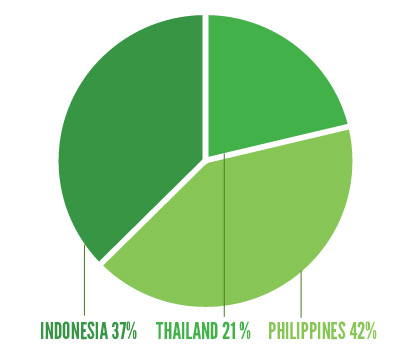
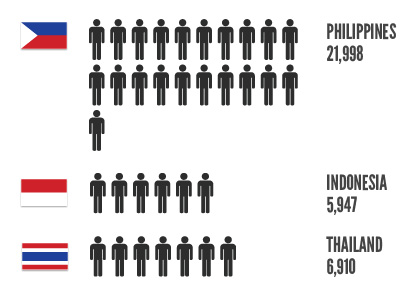
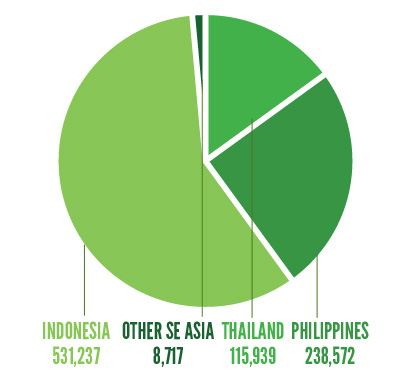
A total of 5,097 people participated in our activities in 2013. A good 29% of them were actively involved with our campaign work and participated in various activities ranging from non-violent direct actions, creative protests, volunteer meetings, and to helping out in the office.

There are 57,447 donors who make regular financial donations to Greenpeace. As their support grows, our voices grow stronger, enabling us to defend Southeast Asia’s rich natural environment.
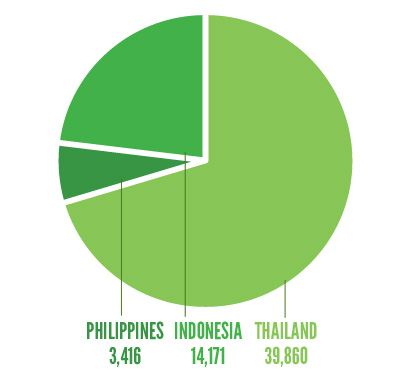

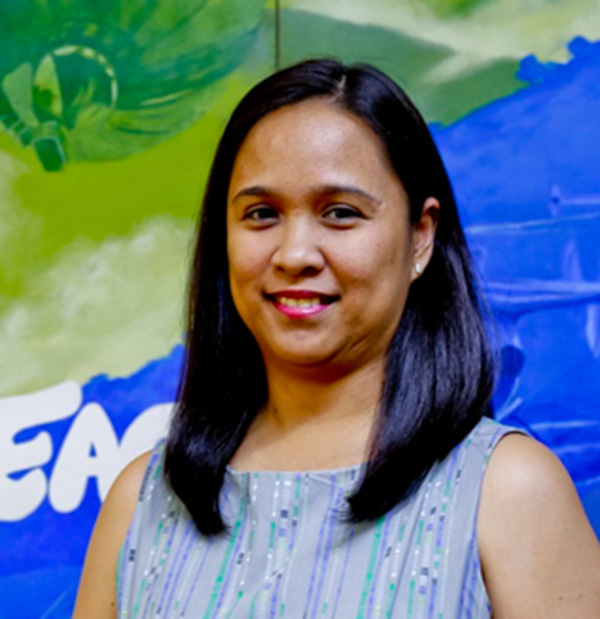
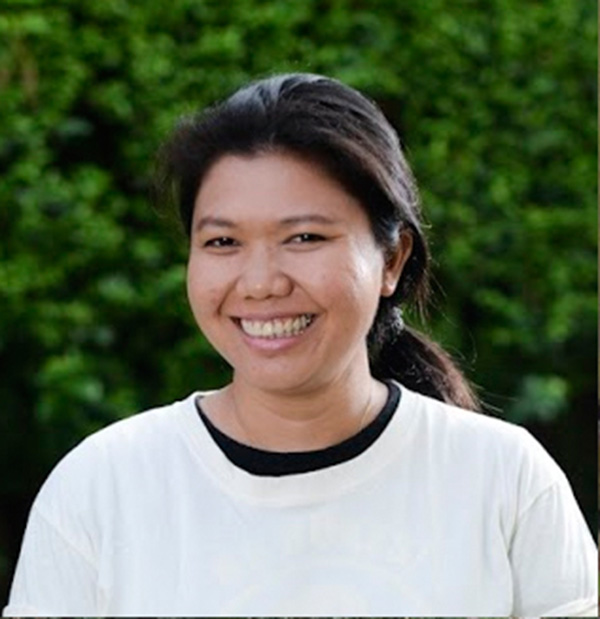
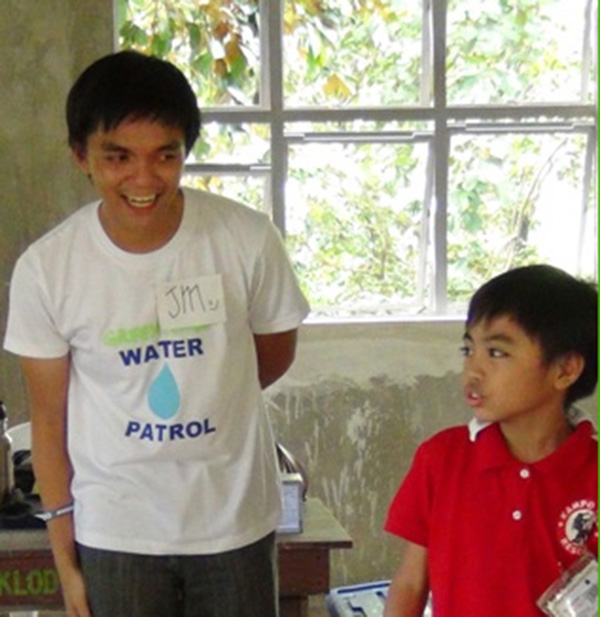
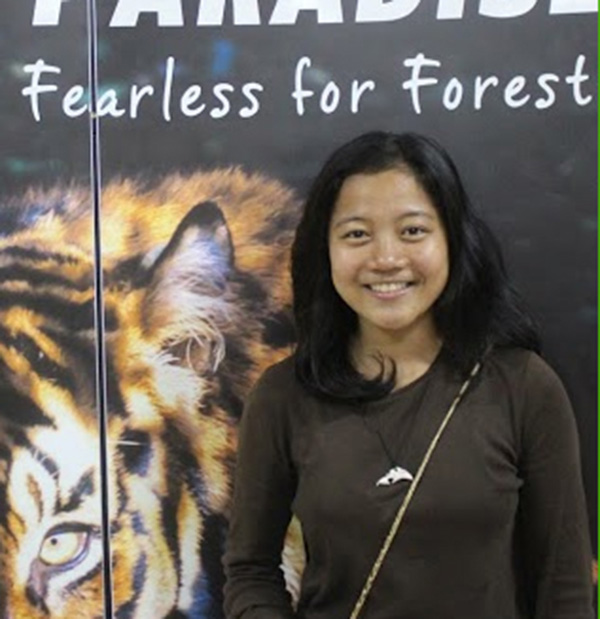
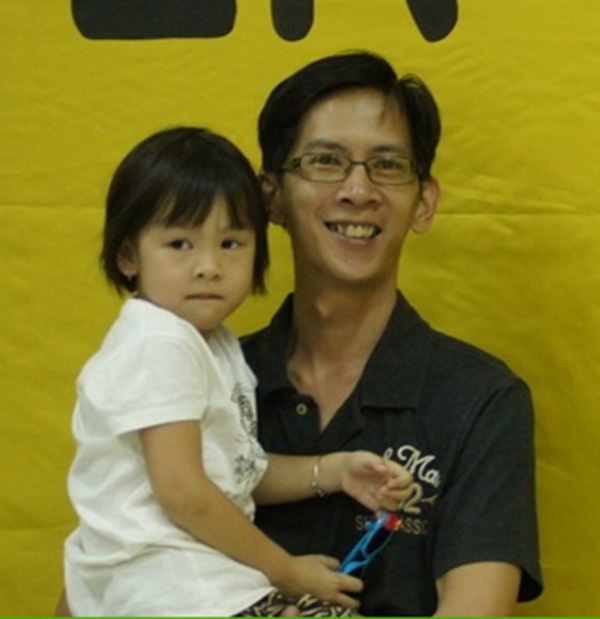
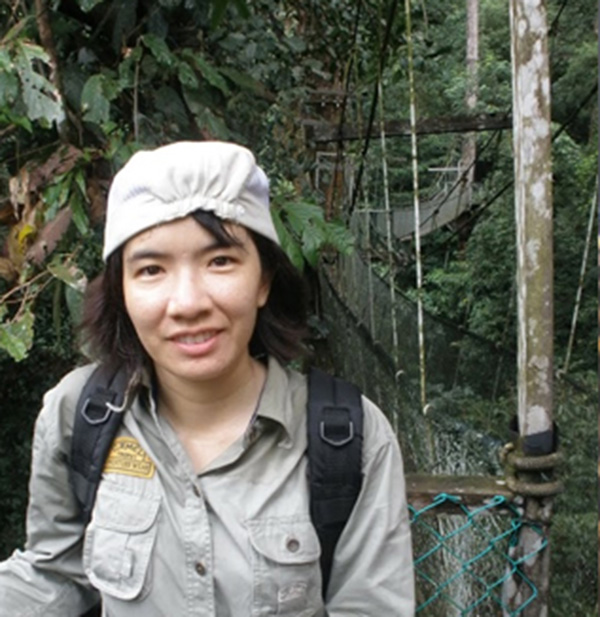

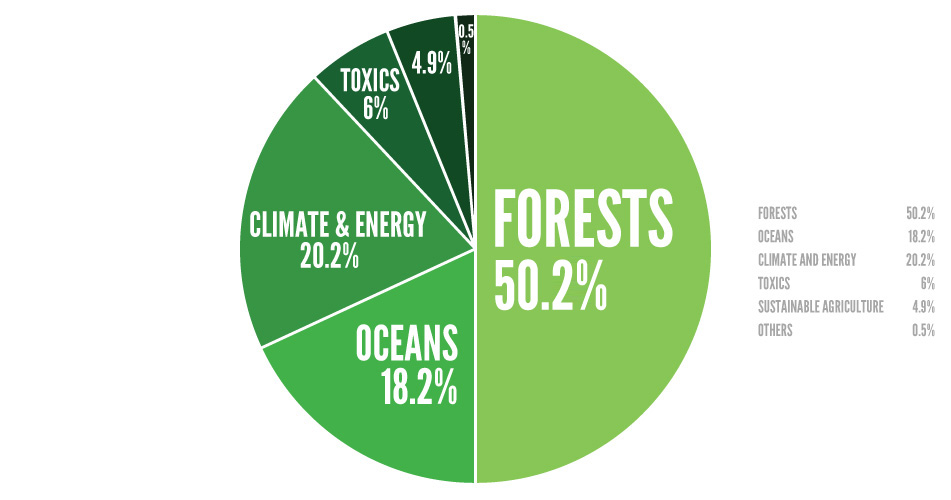
Our work in Greenpeace is possible thanks to the millions of people who fund our work across the globe. In Southeast Asia, we have 57,447 financial donors from all walks of life who support our work. Because of them, we are able to campaign for a greener future by investigating, documenting and lobbying for the protection of our climate, forests, oceans, freshwater, and food.
Greenpeace is the only global environmental charity that does not accept funds from corporations or governments. Our financial independence enables us to do our job credibly by exposing environmental crimes and demanding accountability and restitution.
In 2013, we were able to raise 142,881,000 Thai Baht within the region. On expenditures per campaign issue, 50.2% of the campaign expenditure was used for our forests campaign, 18.2% for our oceans campaign, 20.2% for our climate and energy campaign, 6% for our toxics campaign, 4.9% for our sustainable agriculture campaign, and 0.5% for other campaign related activities such as rapid response.
Greenpeace takes transparency and accountably very seriously, and is a signatory to the INGO Accountability Charter.
To read the full audited reports, please get in touch with our supporter care team at supporterservices.ph@greenpeace.org